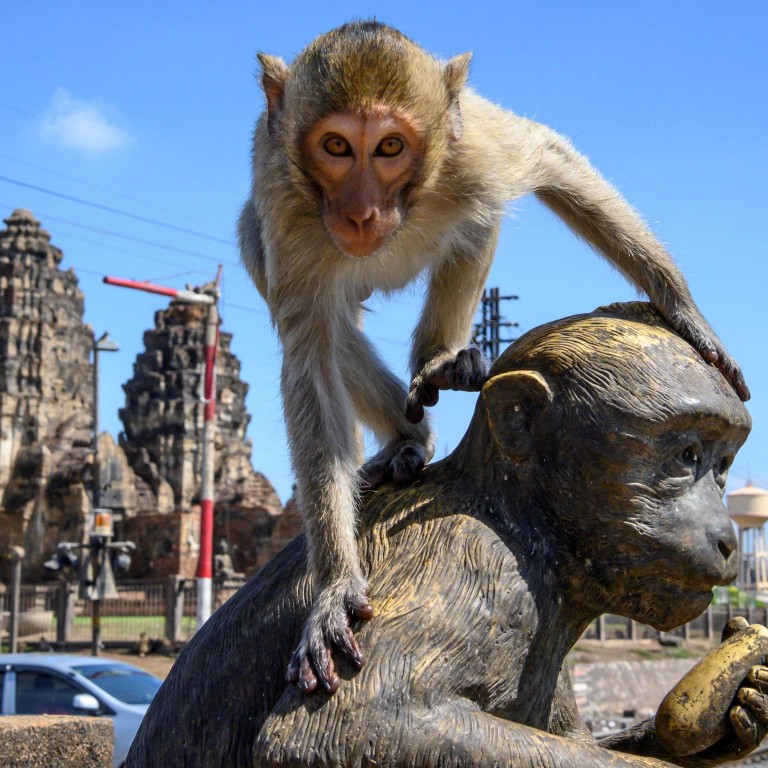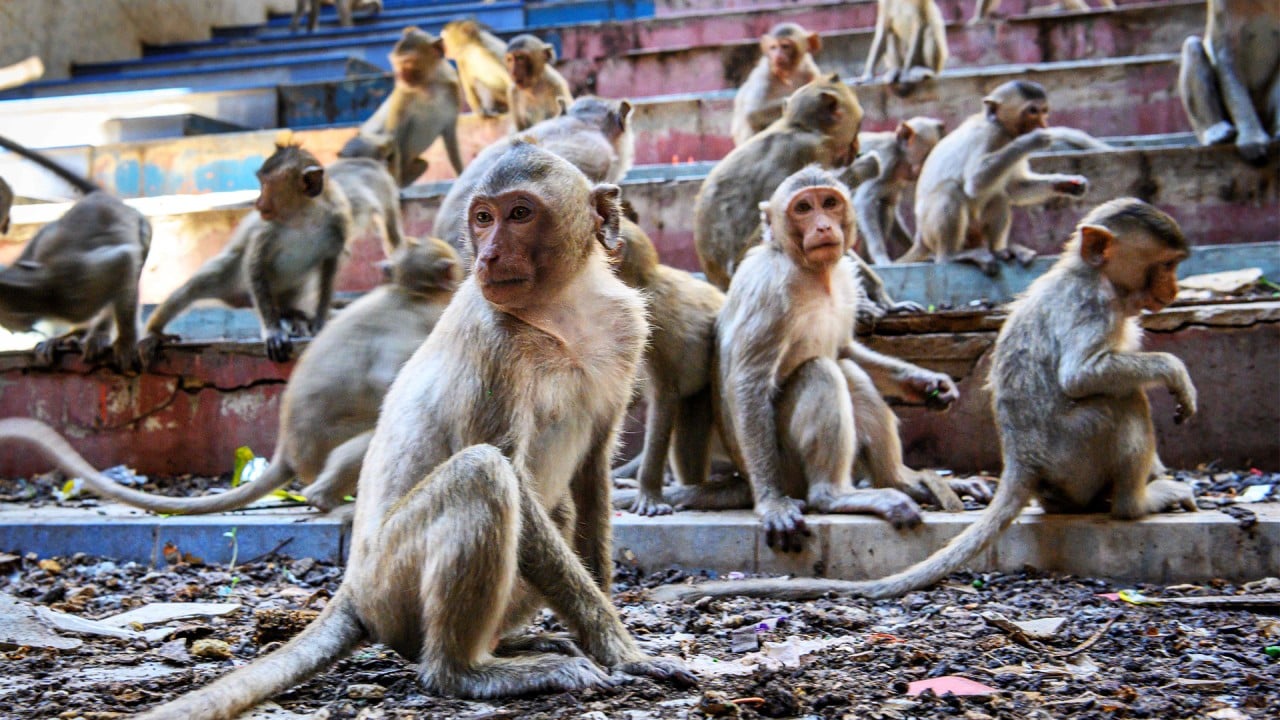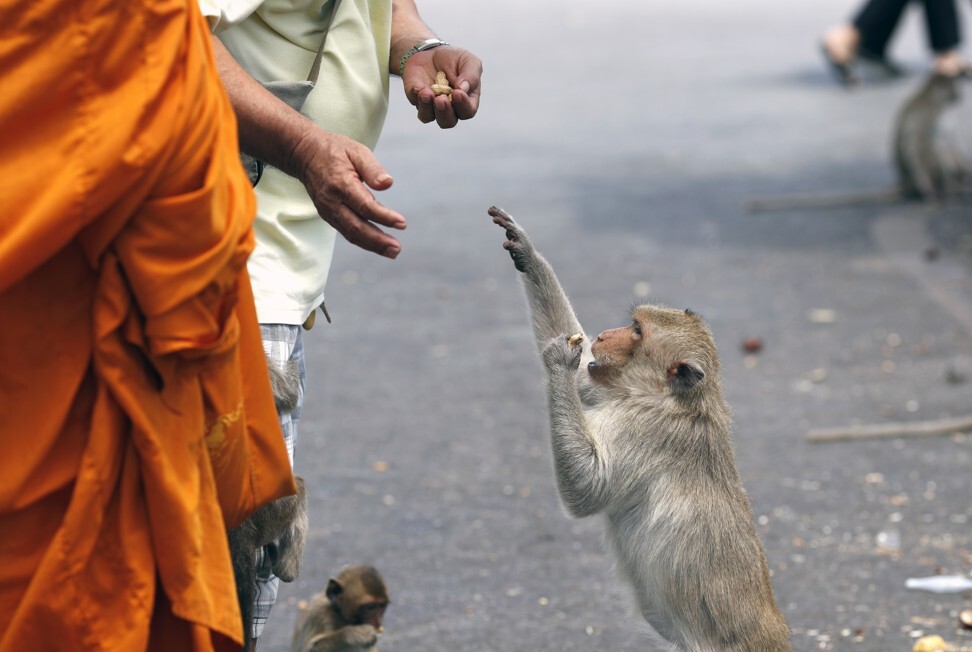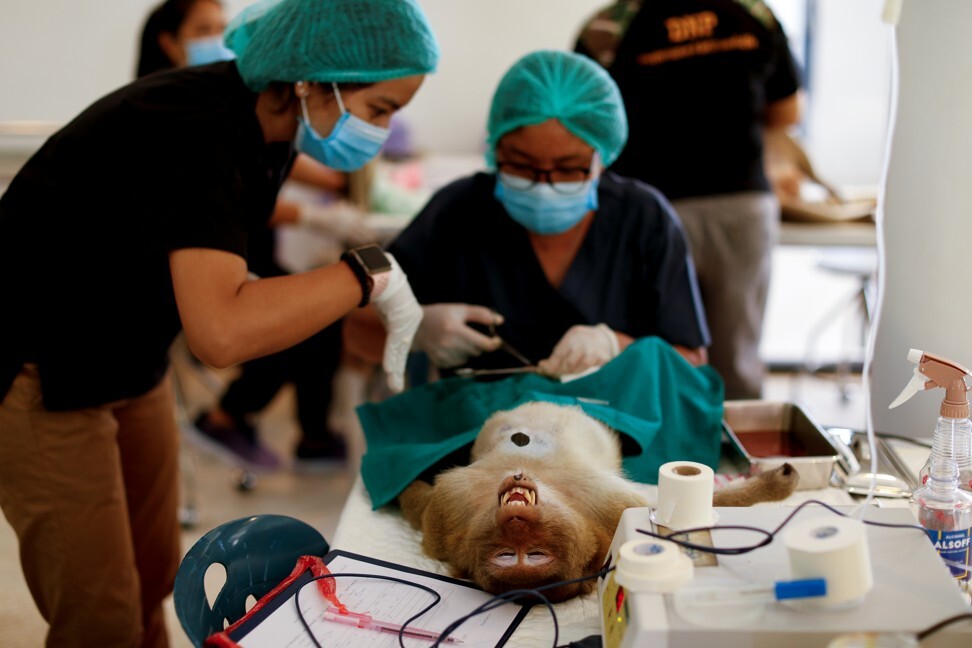
Tourist city in Thailand overrun with hungry monkeys starts mass sterilisation programme
- With tourists gone since Thailand closed its borders in April to control the coronavirus, Lopburi’s macaques have been getting hungry and aggressive
- The government aims to sterilise 500 of the monkeys over the next two months, in an effort to control the size of their population
Lopburi province and its 2,000 monkeys have long been a draw for tourists from around the world, who typically feed them and pose with them for selfies.

03:03
Humans try to take back control in Thai city overrun by monkeys
But since Thailand closed its borders on April 4 to control coronavirus infections, the monkeys are not adapting well to their new normal.
“They’re so used to having tourists feed them and the city provides no space for them to fend for themselves,” said Supakarn Kaewchot, a government veterinary surgeon.

“With the tourists gone, they’ve been more aggressive, fighting humans for food to survive,” she said.
“They’re invading buildings and forcing locals to flee their homes.”
Unlike monkeys in the wild, city monkeys need not hunt for food, giving them more time and energy to reproduce and cause trouble, Supakarn said.
Online child sex abuse soars in Thailand as predators exploit Covid-19
To try to control their fast-growing population, authorities have this week placed big cages around the city with tantalising fruits in them, hoping to lure around 300 monkeys for sterilisation.
From the cages, the monkeys are transferred to an operating table, where they are sedated, shaved and tattooed with a unique reference number under their arms.

They lay on their backs under a green cloth as vets perform a vasectomy or a tubal ligation operation.
The sleeping monkeys get one night to recover before being taken back to their respective tribes.
In Southeast Asia, Covid-19 lockdowns spur another virus wave
The government aims to sterilise 500 of the macaques over the next two months.
Supakarn said the sterilisation would pose no threat to the monkey population and the aim was just to slow down the rate of its urban growth.
“We’re not doing this in the wild, only in the city areas,” she added.

